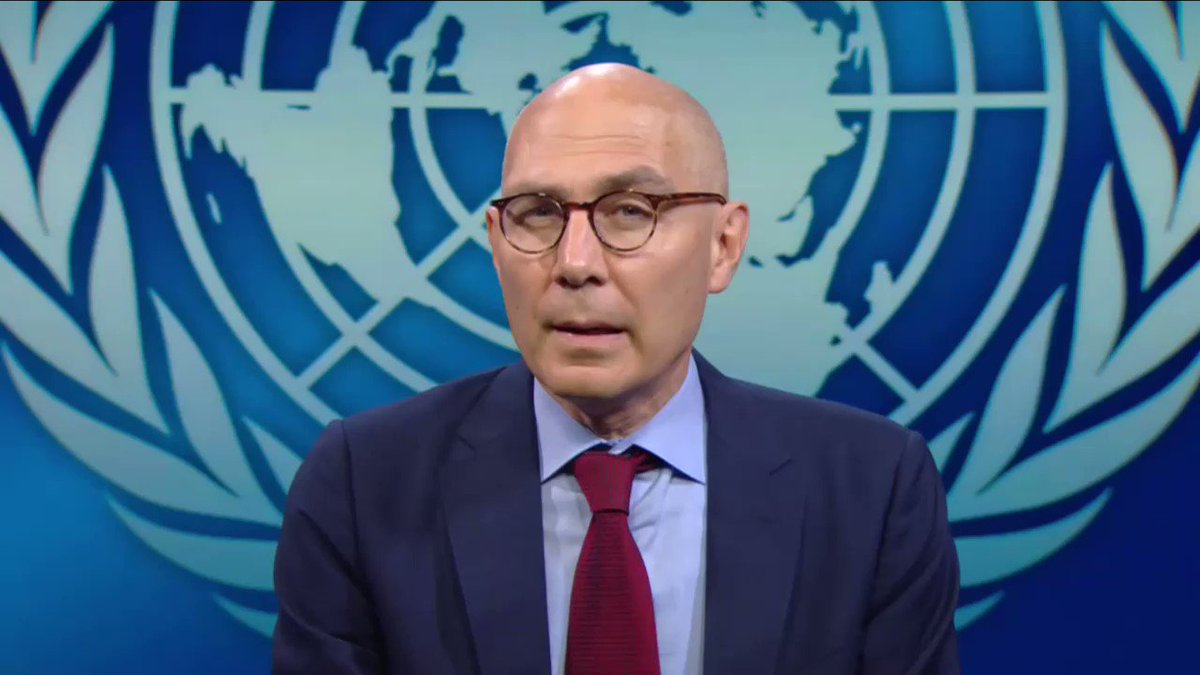As Sri Lanka approaches presidential and parliamentary elections later this year, the newly elected administration must commit to the concrete transformational changes needed to ensure accountability, justice and reconciliation, says the UN Human Rights chief.
The United Nations High Commissioner for Human Rights (OHCHR), Volker Türk, delivered remarks at the Interactive Dialogue on the OHCHR report on Sri Lanka during the UN Human Rights Council session in Geneva on Monday (9), urging Sri Lanka to break from its past and chart a new path forward.
Highlighting concerning trends over the past two years, Türk emphasized the need for the continued attention and support of the international community.
“Two years have passed since mass protests demanded democratic reforms and an end to corruption and the abuse of power. Today, despite promises of a new beginning, those demands remain largely unfulfilled. And while 15 years have passed since the end of the devastating civil war, victims and their families are still waiting for truth, for justice, and for reparation,” he said.
Further, he warned that the persistent sense of impunity hampers progress and perpetuates violations and corruption.
The economic situation in Sri Lanka remains dire, with the poverty rate doubling between 2021 and 2023, forcing many households to make difficult choices between basic needs like food, healthcare, education, and energy, he said.
As Sri Lanka approaches presidential and parliamentary elections later this year, Türk called on the new administration to commit to transformative changes that ensure accountability, justice, and reconciliation.
“Those in power must protect fully the rights to freedom of expression, association, and peaceful assembly prior to, during, and after the upcoming elections. And the international community must support this transformation. It is important for Sri Lanka’s creditors to provide the Government with the fiscal space necessary to realize all human rights, including economic, social, and cultural rights,” he said.
The UN High Commissioner for Human Rights expressed particular concern over new and proposed laws that grant broad powers to security forces and restrict civil liberties.
“One such example, the draft NGOs Registration and Supervision Bill, has a range of problematic provisions – including broad discretion given to authorities to deny registration of civil society organisations – which carry major risks threatening civic space.”
He further said that reports of persistent harassment, surveillance, and intimidation of journalists, civil society actors, victims and human rights defenders are unacceptable.
Türk highlighted the absence of accountability for both past and present violations, noting a lack of progress in emblematic cases such as the 2006 massacres of humanitarian workers in Muttur, the killing of five Tamil students in Trincomalee, and the murder of journalist Lasantha Wickrematunge in 2009.
Additionally, the criminal investigation into the 2019 Easter Sunday bombings has seen limited advancement. Türk pointed out that individuals allegedly responsible for gross violations continue to be appointed to senior positions, further entrenching impunity.
Addressing enforced disappearances, the High Commissioner lamented that the fate and whereabouts of tens of thousands of people remain unknown, leaving their families in anguish.
He stressed that acknowledging past violations, the state’s responsibility, and the legacy of these atrocities is crucial for rebuilding trust and addressing polarization in Sri Lanka.
“This must change, and that would start with a formal acknowledgement of the serious violations that occurred during the war, of the responsibility of the State and security forces for the conduct of their own personnel, and of the legacy of those atrocities for victims and communities. A clear, public change of narrative along these lines would help to re-establish trust in the authorities and begin to address the deep polarization in the country,” he said.
A public change in narrative would support processes of truth, reconciliation, and healing, ultimately helping to rebuild the social contract.
Further, Türk underscored the broader implications of failing to address past violations, noting that the lack of accountability for international crimes can renew old conflicts and sow seeds for future unrest.
He stated that without accountability, the cycle of violence will continue. However, he offered hope, suggesting that a path paved with justice and accountability could lead to healing, reconciliation, and peace.
He urged Sri Lanka to pursue an inclusive national vision that addresses the root causes of conflict and undertakes fundamental reforms to strengthen democracy and advance accountability and reconciliation.
Türk called on the Sri Lankan government to implement significant security sector reforms and hold accountable those implicated in serious violations. He also urged the government to take immediate steps to prevent future human rights violations.
“The Government must implement significant security sector reform – including holding to account those individuals implicated in serious violations. And it must take immediate steps to prevent human rights violations.”
He assured that the Office of the High Commissioner for Human Rights stands ready to support Sri Lanka on its journey toward change, reflecting the voices of Sri Lankans from all communities who desire progress.
“My Office is not here to point the finger, but to lend a hand. We are reflecting what Sri Lankans from all communities are telling us. They want change, and my Office is ready to support Sri Lanka on that journey. In the meantime, it is important for this Council and UN Member States to continue to address the accountability gap in Sri Lanka – including by supporting the work of my Office.”
Türk emphasized the role of the Human Rights Council and UN Member States in closing the accountability gap in Sri Lanka. He encouraged States to take action through their domestic systems and international forums to support meaningful accountability and reconciliation in Sri Lanka.
The High Commissioner concluded by acknowledging the prolonged distress experienced by Sri Lankan communities and stressed that it is time to bring closure to the past, break the destructive cycle of violence, and begin an inclusive journey toward a just and sustainable future for all Sri Lankans.


